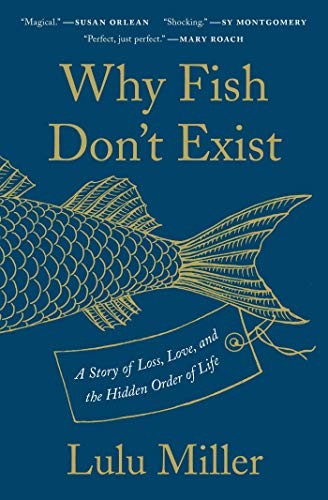4thace reviewed Why Fish Don't Exist by Lulu Miller
A biographical obsession leads to epiphany
5 stars
This is another book where the story being told about its subject gets interrupted by the storyteller's musings on what it all means to find out what they expected to portray seems to end up pointing in a completely different direction. The author's story is just as interesting as that of the real-life man she has happened to study out of personal crisis. Maybe it should not have been so surprising to me as a reader that a life story beginning in the nineteenth century ended up having unexpected lessons about the here and now. The way David Star Jordan became a biologist, a college president, a possible criminal, and a staunch eugenics promoter revolves around investigations into nature and a remarkable dogged optimism that any obstacle can be conquered with sufficient willpower. We find out why this level of tenacity can turn out to be a dark thing in certain circumstances. The author doesn't mention it but the thing it reminded me is of the doctrine of The Power of Positive Thinking by Norman Vincent Peale, which we have come to see as one route to mass disinformation by a sufficiently warped individual. Jordan had both vision and an inability to recognize facts that were inconvenient which the author is able to piece together in a convincing way. The puzzle title of the book refers to a new stream of biological taxonomic thinking which can be considered to upend the idea that drove Jordan to amass his collections of specimens, despite the ruinous 1906 earthquake at the height of his career.
This isn't a book crammed with scientific facts about fishes about any other subject other than the character of someone you probably never planned to learn about. It takes a very dark turn about two thirds of the way through as a death investigation pops up which ends up seeming pretty damning about Jordan. This and the ugly politics he promoted up to the end of his life I never saw coming. But it still manages to end on a transcendent personal note squarely in the author's narrative that arrives like an unexpected gift, particularly when you hear it in her own voice. There are a couple of special little audiobook extras that I found touching as well. I don't know when I'll read another non-fiction book with that kind of quirky generosity again.

